Un-Lim
About Project
The core element of this design is empowering people to achieve sustainable outcomes, and enabling individuals to define their problems and come up with ideas to solve them or answer them in a better way and without purchasing. By answering the exact needs and the ability to transform the product to meet upcoming personal and environmental changes, Un-Lim lowers the consumption rate concerning satisfaction. Reduction in consumption ultimately reduces greenhouse gases, waste and preserves natural resources. This approach not only has environmental benefits but also reduces the work pressure for any individual who wants to answer the specific needs by shopping and also empowers the local workforce due to simple production methods and materials.
This approach shows something beyond common practices to people and enables them to gain more self-confidence for answering their needs in the context of furniture and their ordinary purchases. Empowering people alongside the other considerations such as making the connection between natural and human resources stronger with perceptions, are the ways that can be expected to have a potent effect on the user’s behavior. This decentralization by design can have a major effect on political consideration and will shift the structure of power if implemented broadly.
Furniture is usually faced with variability problems regarding usability and aesthetics which is caused by their essential rigidity. The innovation of “Un-Lim” lies with its inconstant nature and by enabling the user to decide what they desire, which means the creativity never ends. What makes Un-Lim unique, is the broad level of customization alongside the ability to be something understandable due to its aesthetical features which generate products similar to common furniture. Since no fundamental change in the notion of furniture is required, this attribute makes it desirable for the market. Furthermore, by simplifying the connections of modules, due to the use of toolless and innovative connections, the creative process of producing new furniture is easy to grasp. The modules’ sizes are designed in a way to make it possible for users to build ergonomic furniture based on their bodies. Users can also adjust some variants like chair angles and position/size of lumbar support. This empowerment by regaining the self-confidence of people ultimately inspires individuals to ask this kind of solution in every aspect of their life. Un-Lim not only indirectly reduces the furniture impacts on earth but also can be recycled or compost after the end of its lifecycle.
From production perspective, innovation lies in the design properties which make it possible to assemble and disassemble module parts easily. All the key parts of the base module can be made out of plywood sheets with a CNC machine and assembled with the help of only eight screws.
The base of the project started with a broad literature review about eco-design, the psychological lifetime of products, and design for sustainable behavior. Based on the literature, qualitative research has been done to determine which solution has a bigger effect on the furniture system and also to get more familiar with the needs of young people regarding furniture in the region. Through these researches, modularity, transformative design, empowering, using the memory of production and use, and local energy and material become the key elements of designing sustainable furniture to promote a sustainable lifestyle.
Un-Lim is the final design of the project and throughout the design process, three other concepts have been developed, and by getting feedback for each concept from people with different backgrounds, “Un-Lim” was created. Un-Lim can be considered feasible for real-world challenges but it needed a greater effort with a bigger team and resources to be implemented.
Un-Lim was design based on the research about young people who live in Tehran, but it can be said due to cultural fusion and similarity between the younger generation in big cities around the world, this project can be implemented worldwide. It needs to be considered that the base of the design is neutral and users make the final product and give meaning to it. Based on this notion, people in any given context can use Un-Lim the way they desire. From the production perspective, since the design is simple and the base materials can be found anywhere in the world, the manufacturing of the base module can be done in local workshops.
Over-consumption is a worldwide problem and any solution to overcome this matter can be useful everywhere.
-
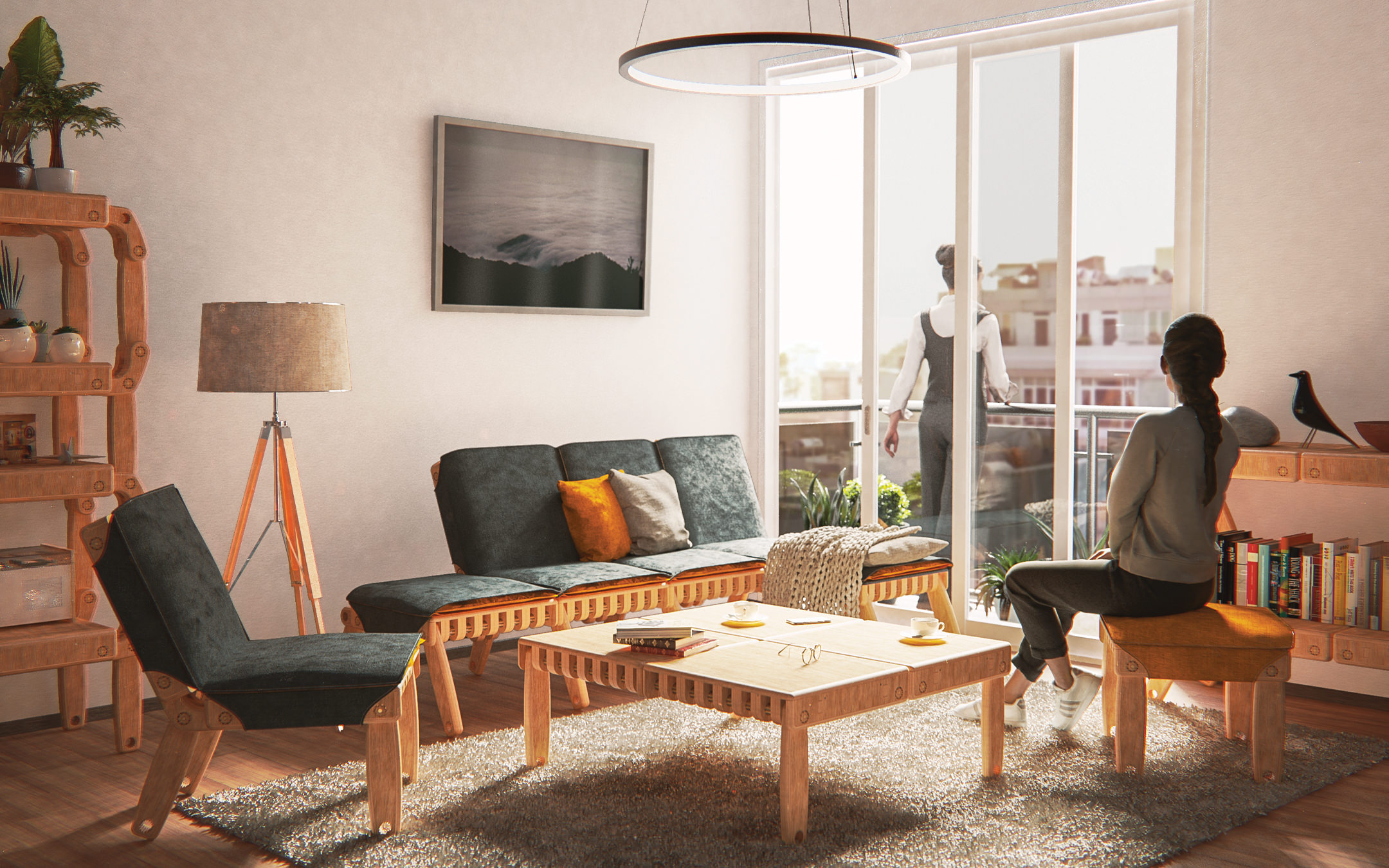
0_Un-Lim-7f3e8ec5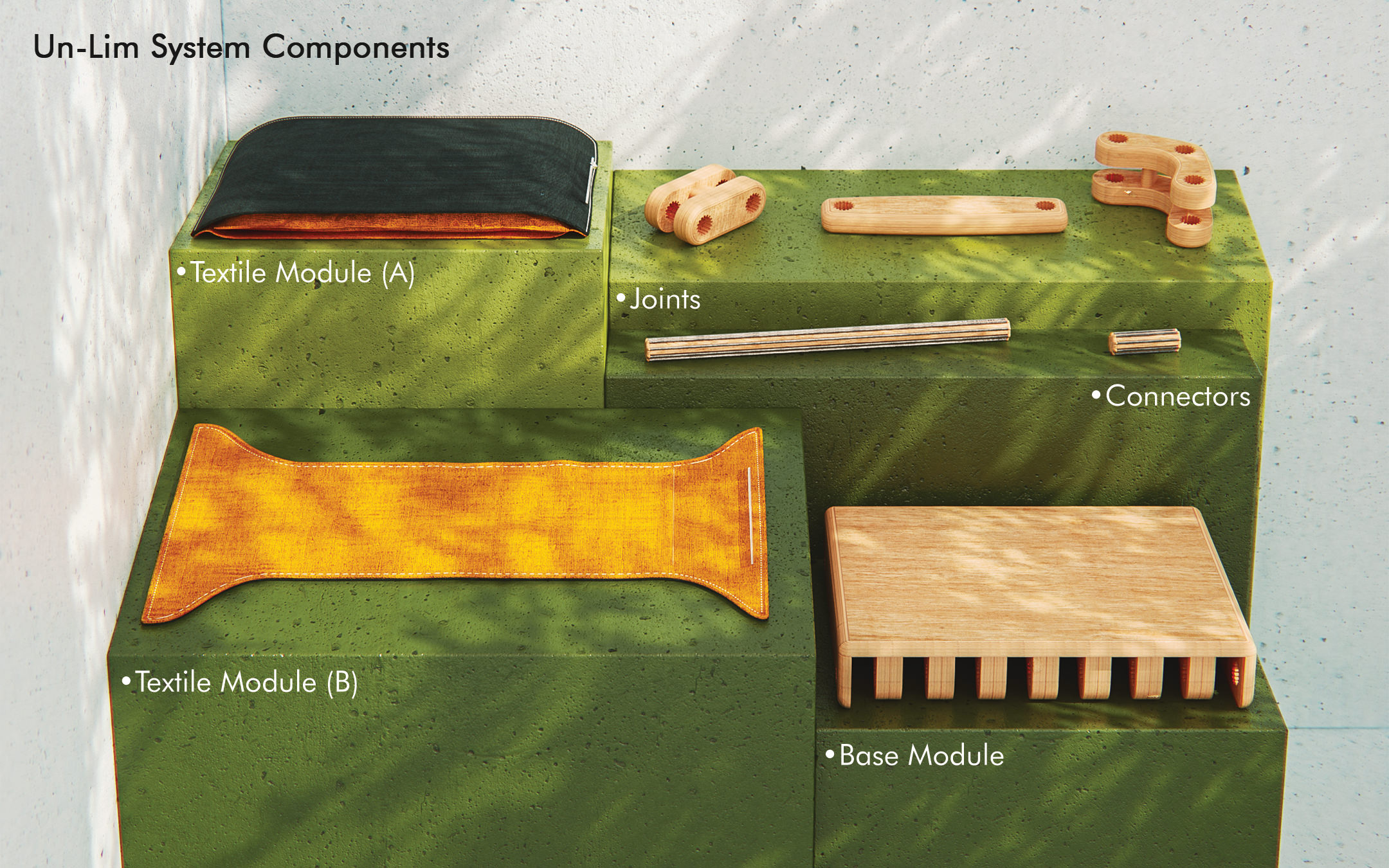
01_Un-Lim-f9baf8fe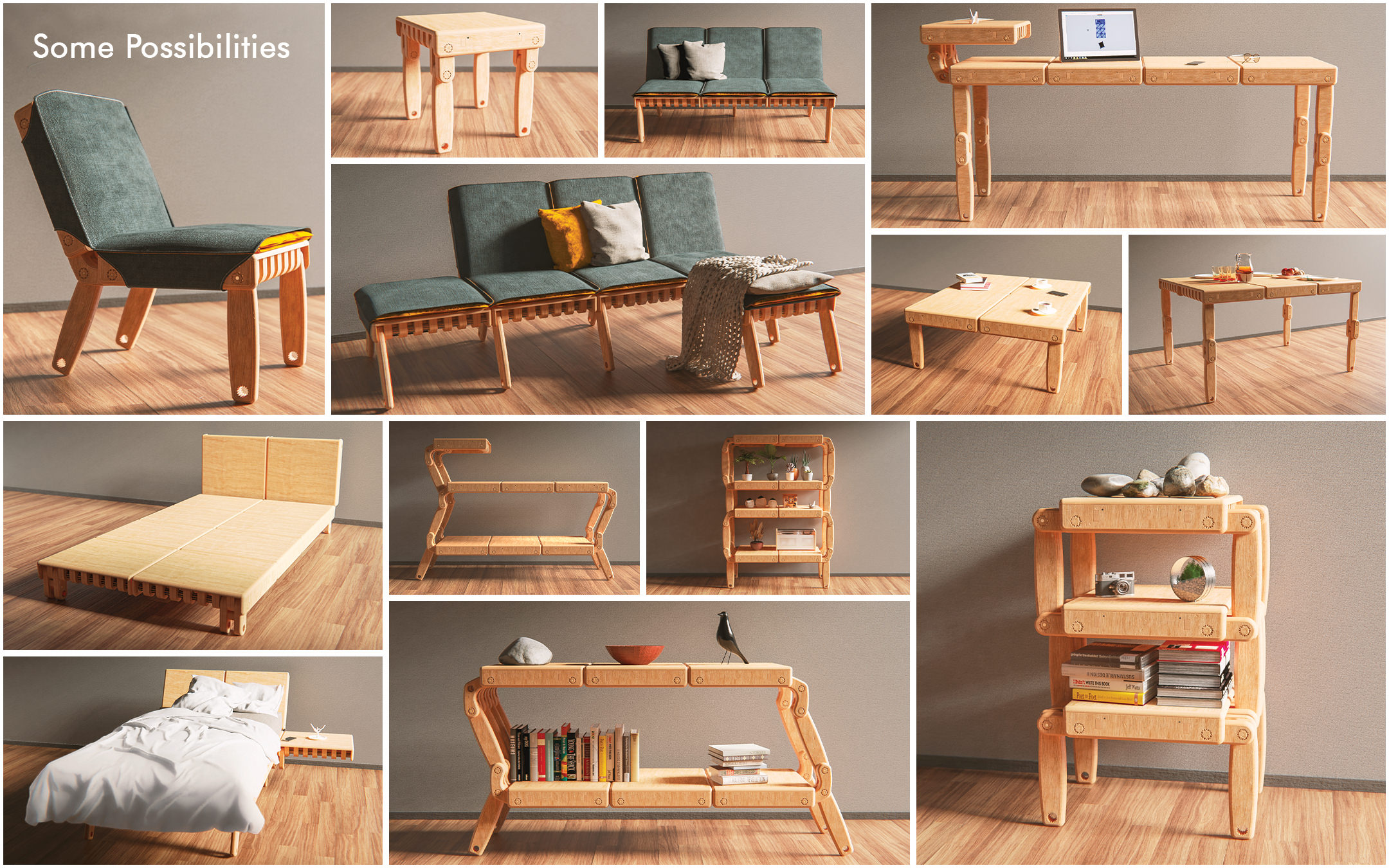
02_Un-Lim-1a46943c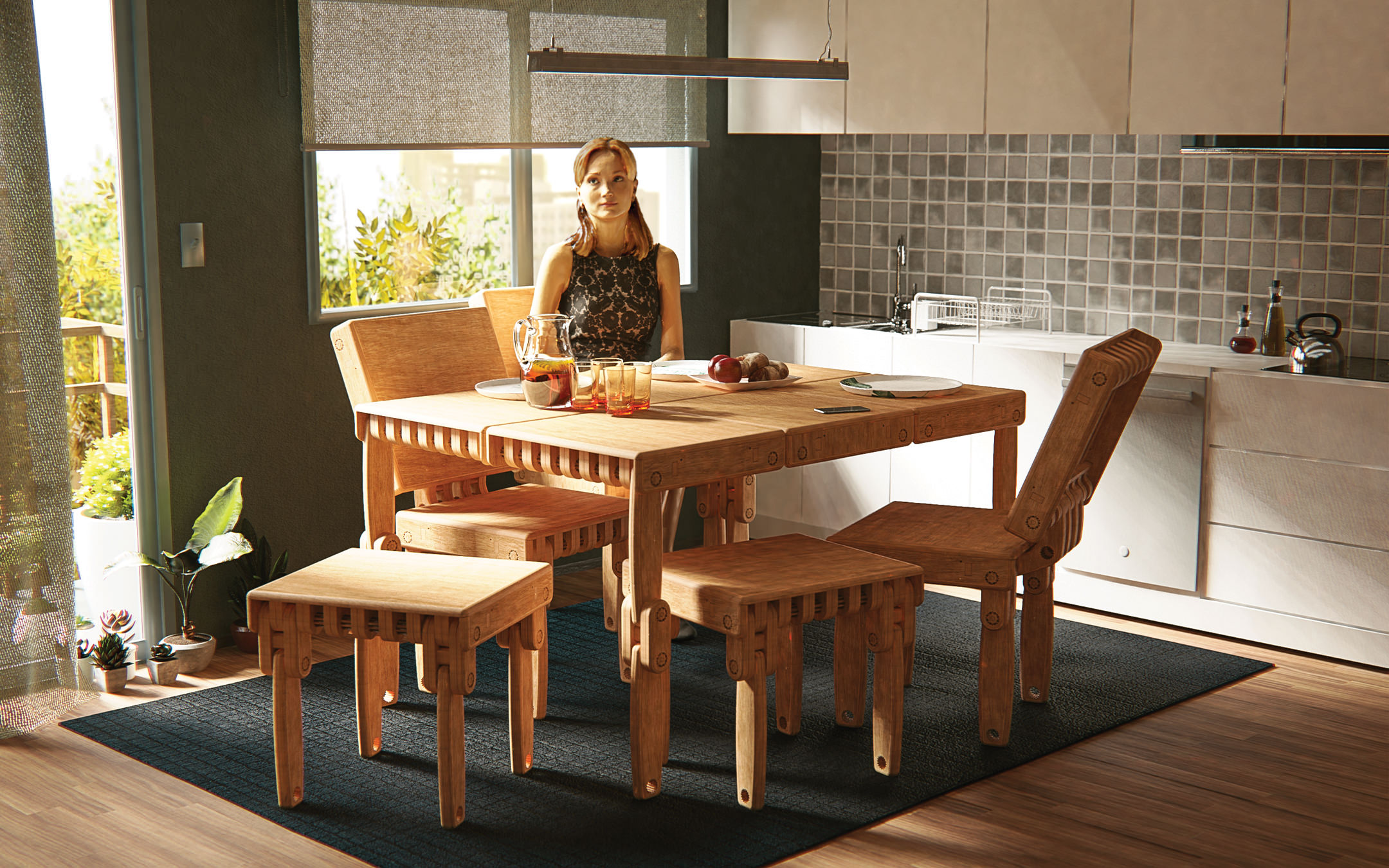
03_Un-Lim-7735296c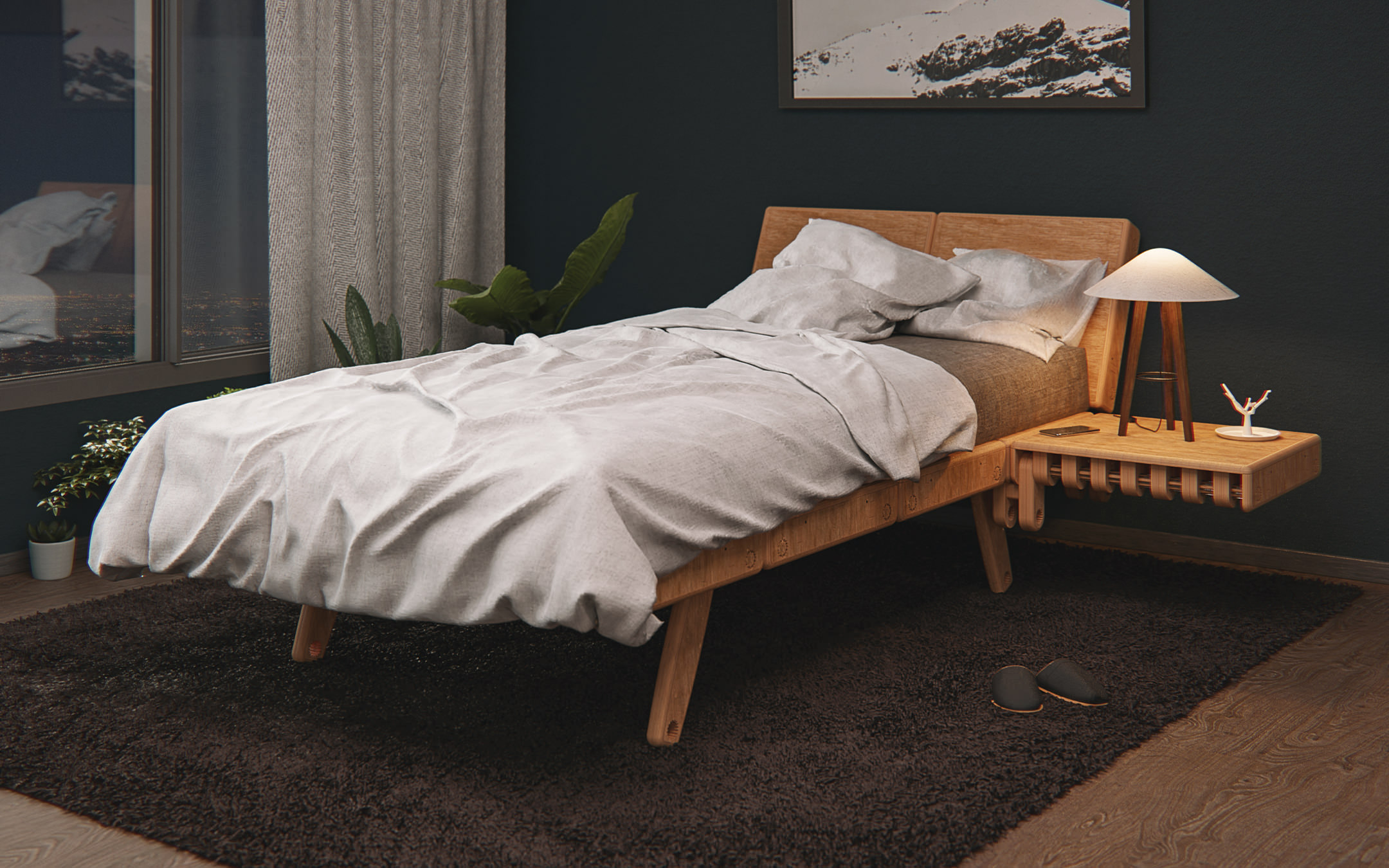
04_Un-Lim-dadab6af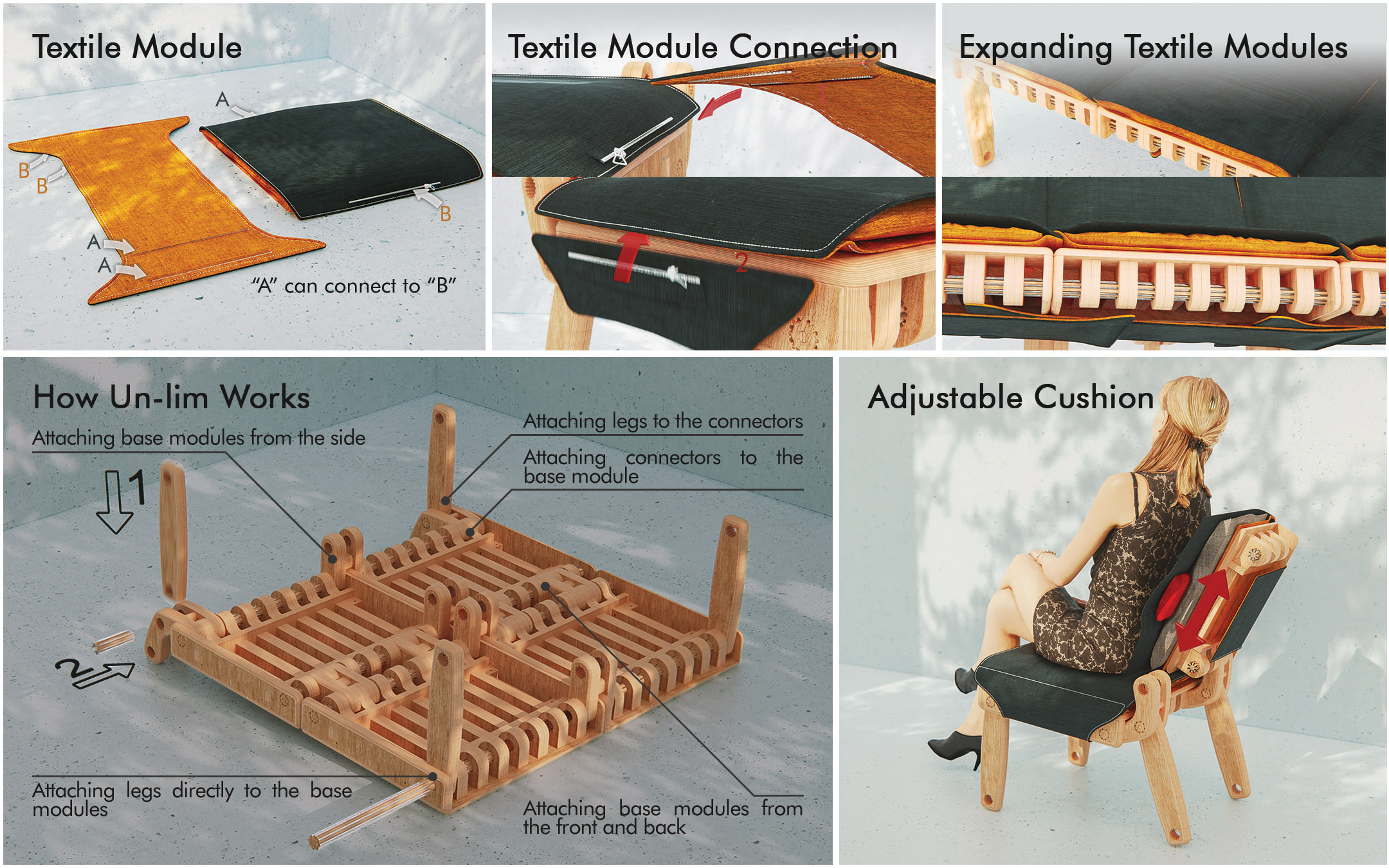
05_Un-Lim-c8e5a460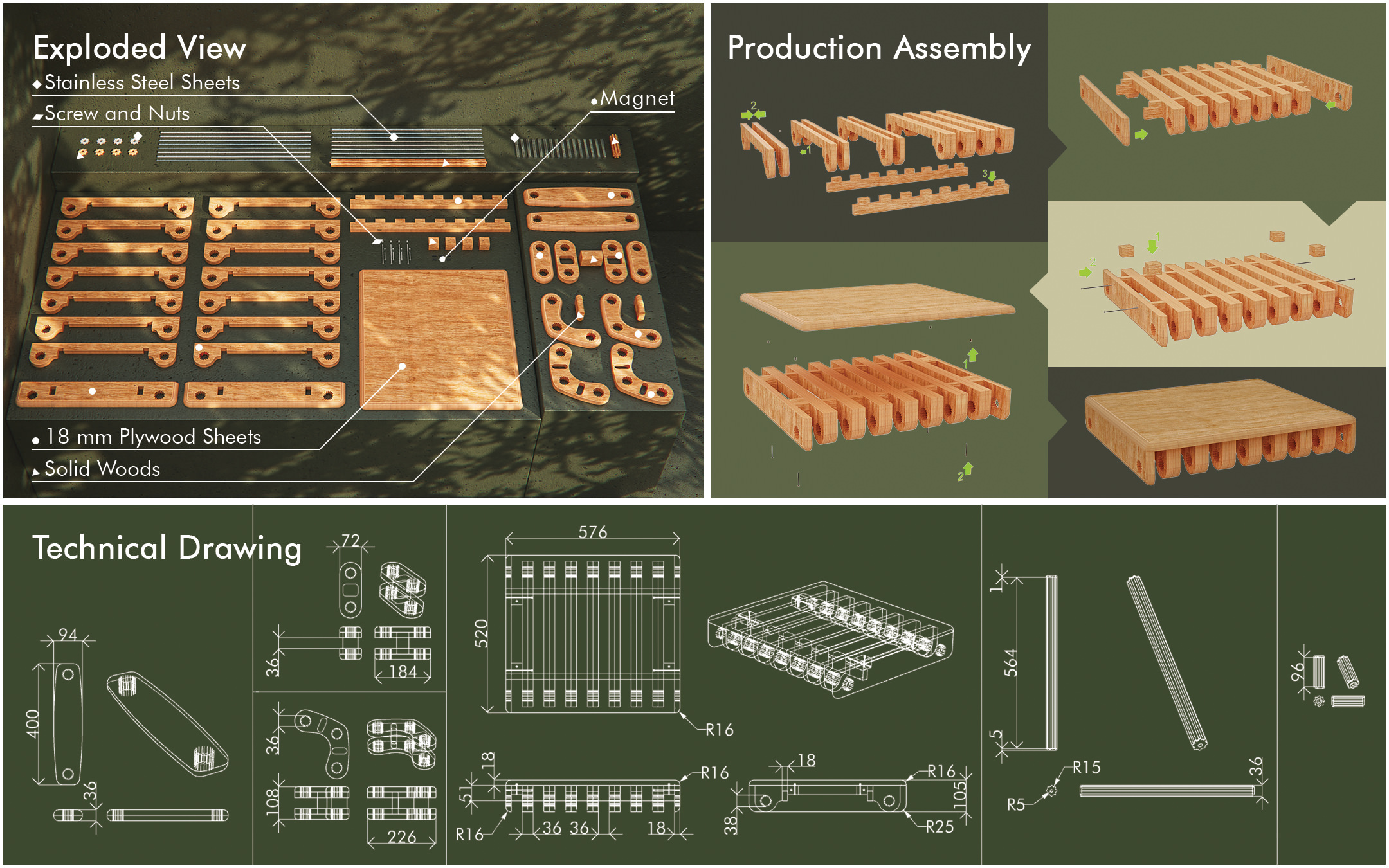
06_Un-Lim-338fe11e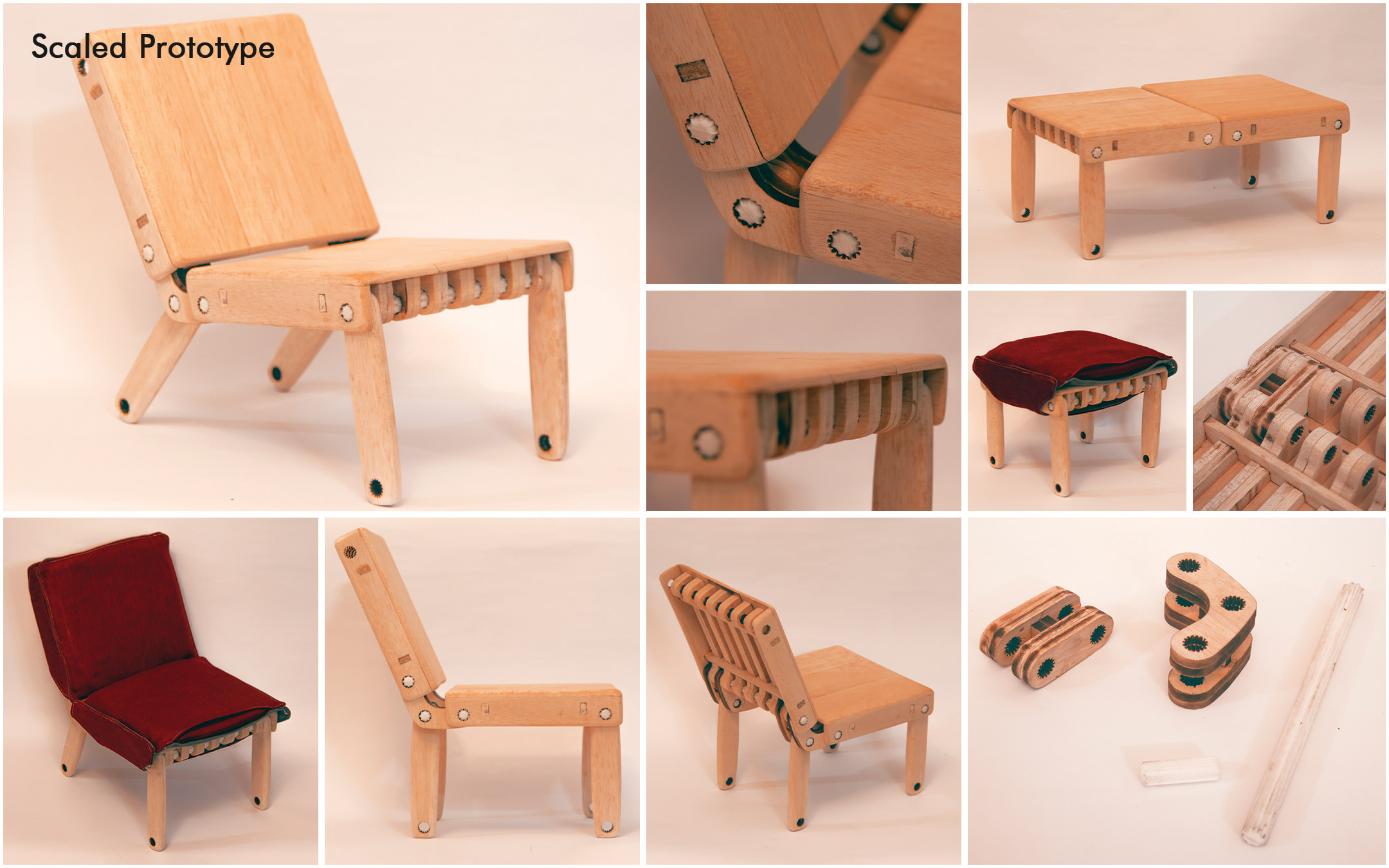
07_Un-Lim-72706b1a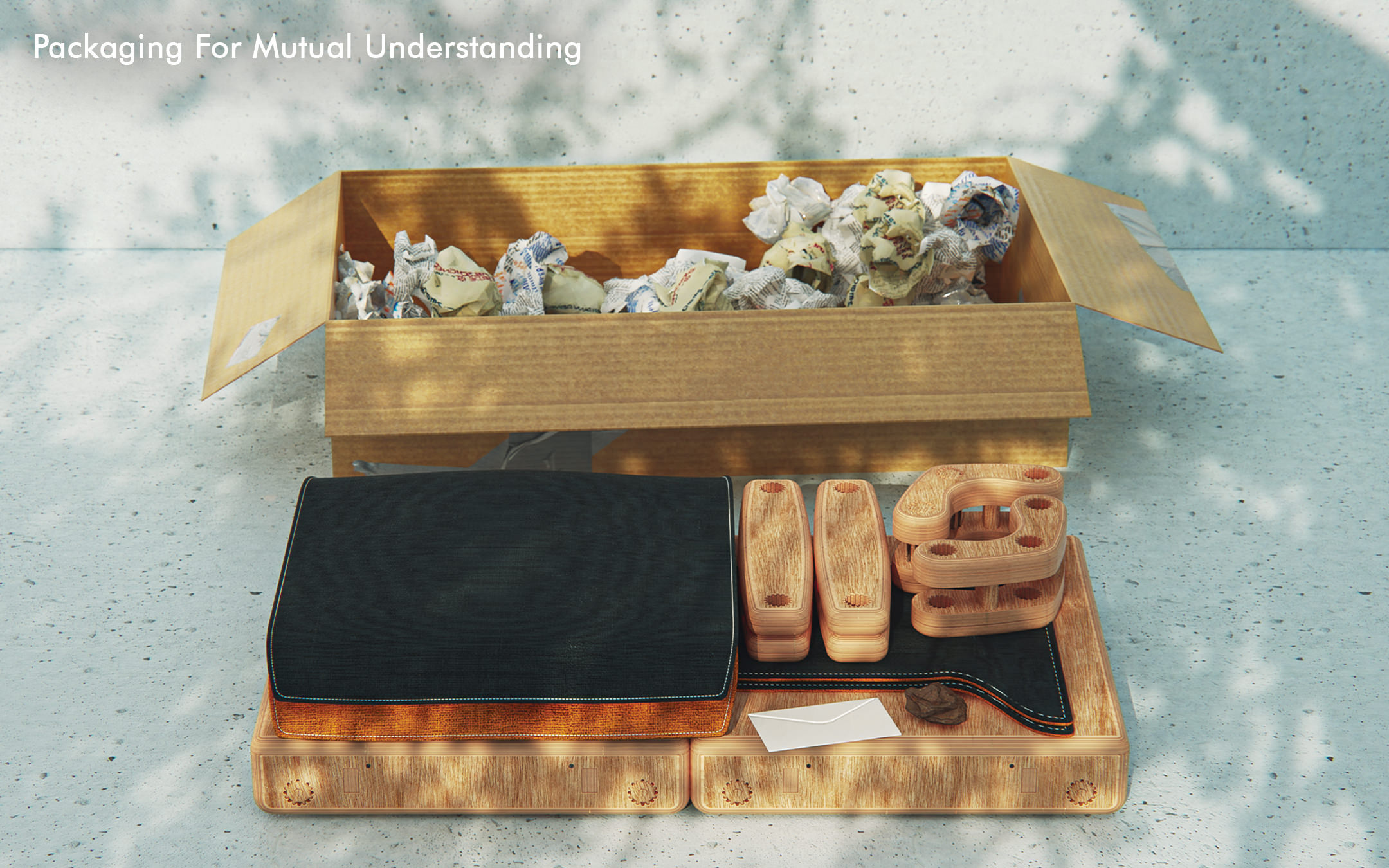
08_Un-Lim-c4520b1c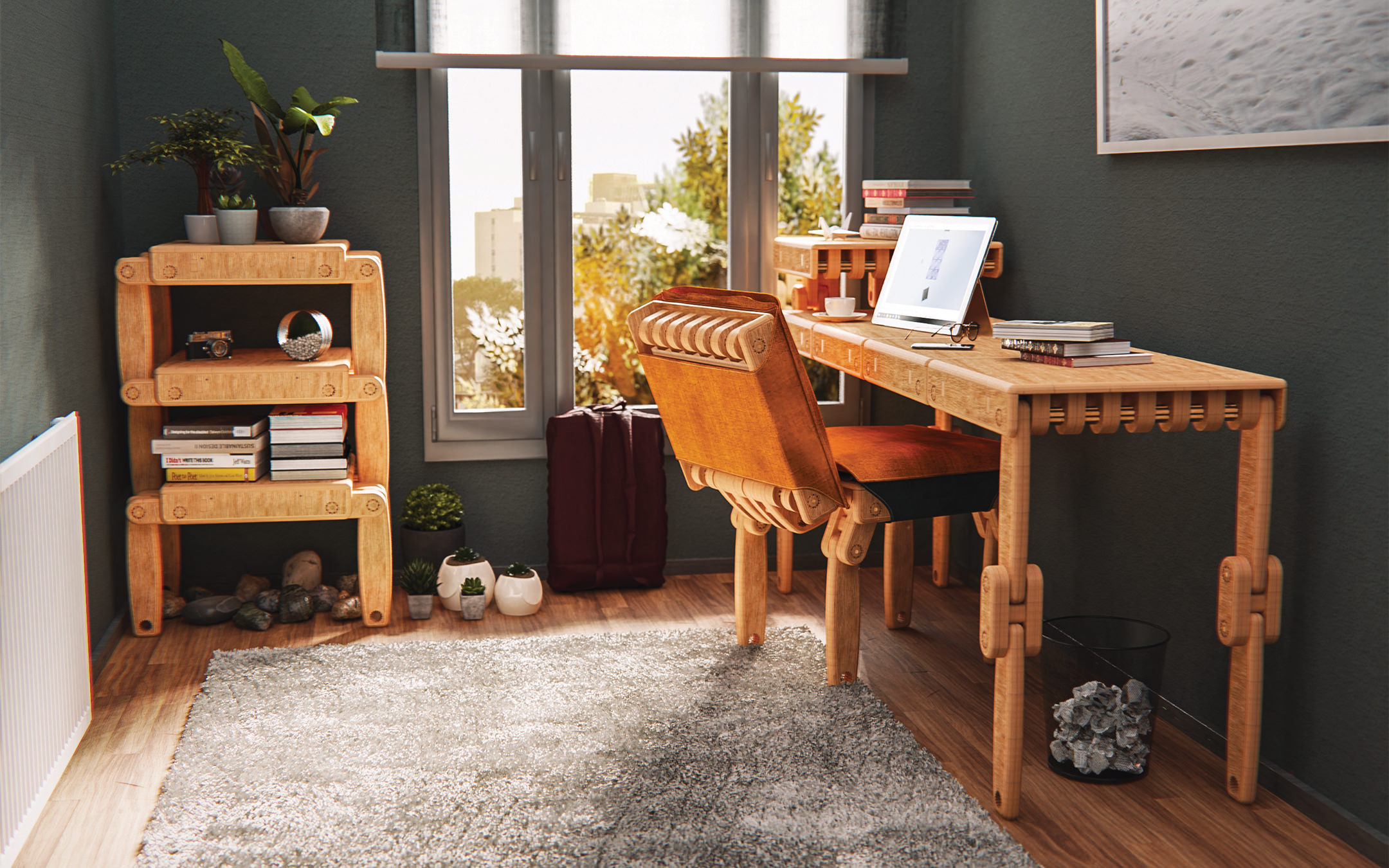
09_Un-Lim-e2c2a901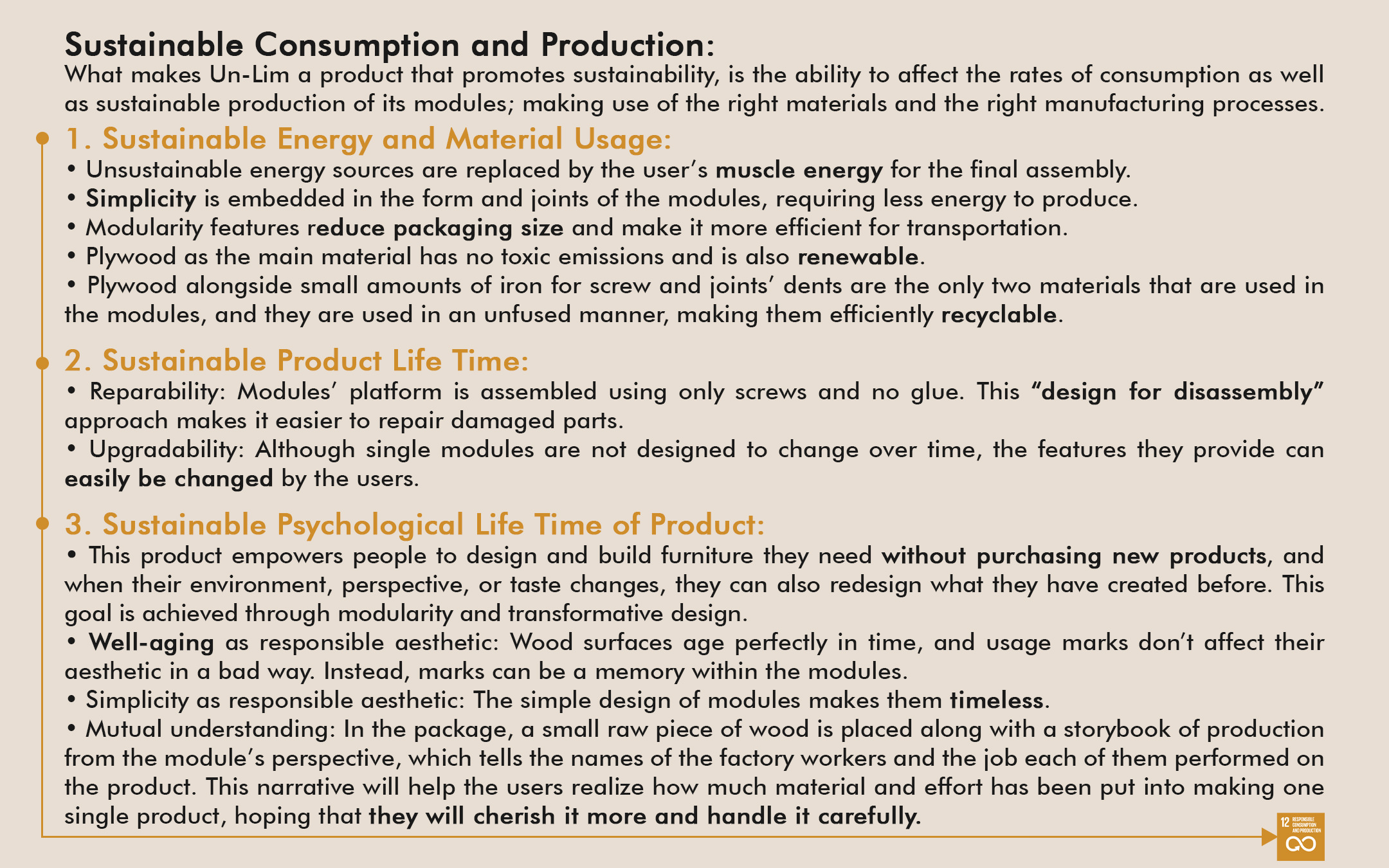
10_Un-Lim-0121f7aa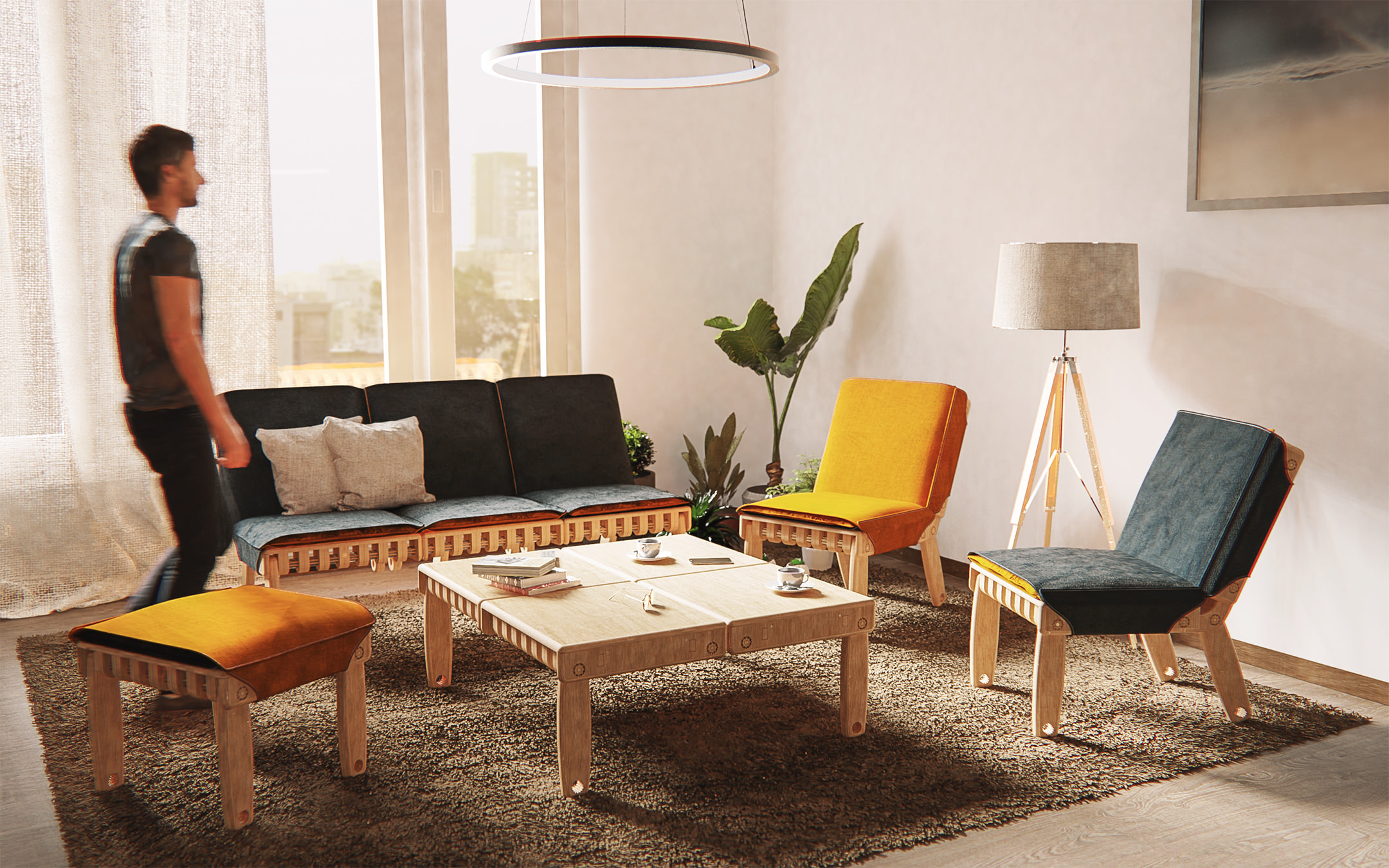
11_Un-Lim-c94eda46 - Ariyan Davoodian
- Furniture design: series | Product design: object | Eco project
- https://youtu.be/1yiDn5QmZOM
-
Unlimited imagination and unimaginable needs of people could be contradictory to the limitations of our planet and our capacities as human beings. The consumption patterns we have adapted have led to global warming, polluted air, soil, and water while putting pressure on people, both in working conditions and a psychological obsession to gain more without answering the real needs. Given these limitations in the context of sustainability and by adding some creativity, we can overcome these problems and meet the unlimited needs of humans, and thrive by reimagining the relationship between satisfaction and consumption. This project was designed to lay the basis for this new relationship by providing people with other possibilities; ways they could explore themselves. This way of thinking not only can address people’s needs in a more sophisticated manner, but it can also adapt to future changes which environment might bring about. “Un-Lim” is a system that empowers people to uniquely design their furniture and transform it over time, expressing themselves and meeting their needs without purchasing new products. By answering the exact needs, paying attention to changes, and considering psychological lifetime, “Un-Lim” affects consumption rate. This reduction in the rate of production and wastes alongside assembly by Muscles and using renewable materials, make “Un-Lim” sustainable and open a door to unlimited opportunity for people who live in flats. This comprehensive approach by confronting the social roots of ecological problems, namely compulsive consumption, encourages us to achieve sustainability in our everyday purchase and eliminate our waste problem.
Designers/Architects
Ariyan Davoodian












